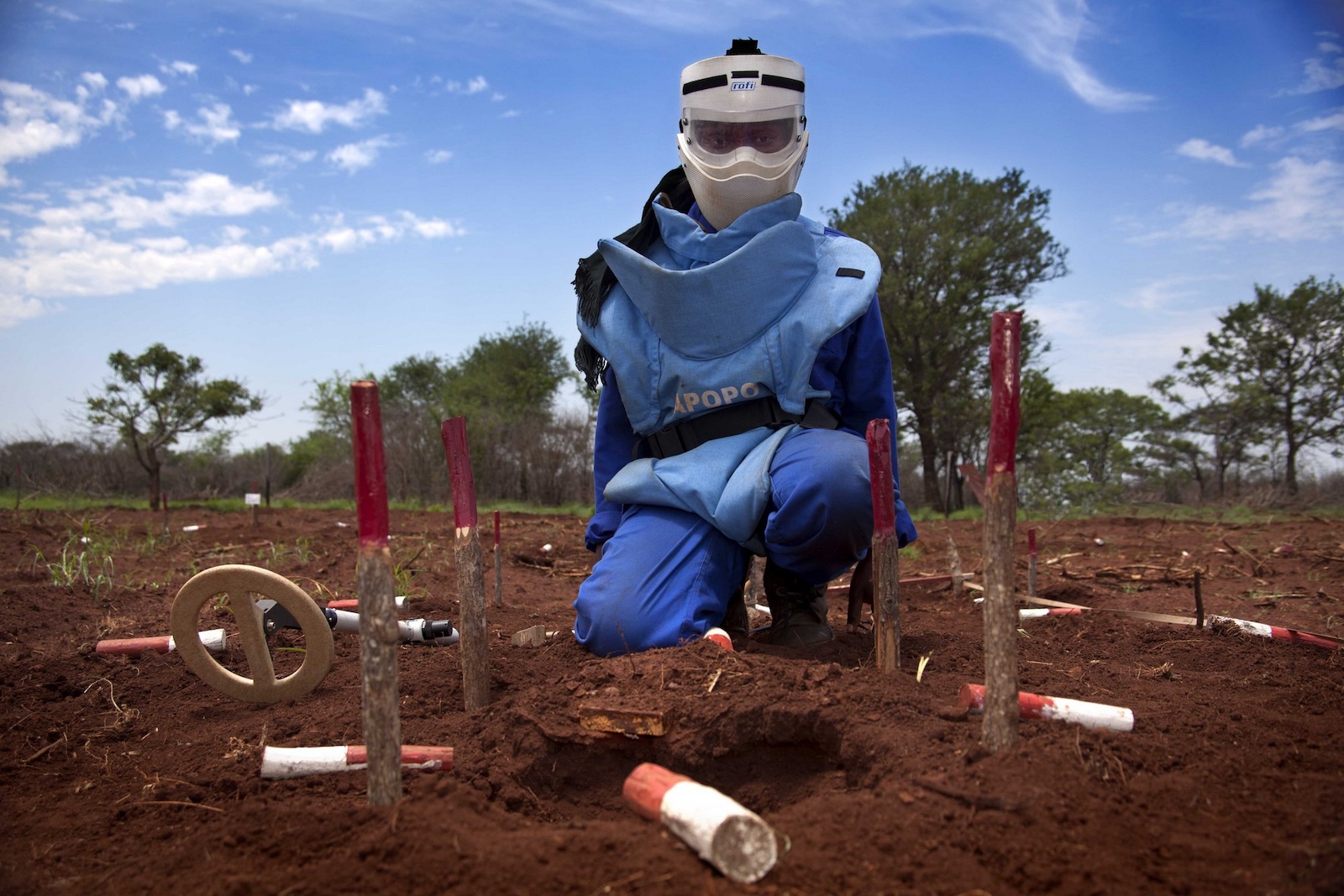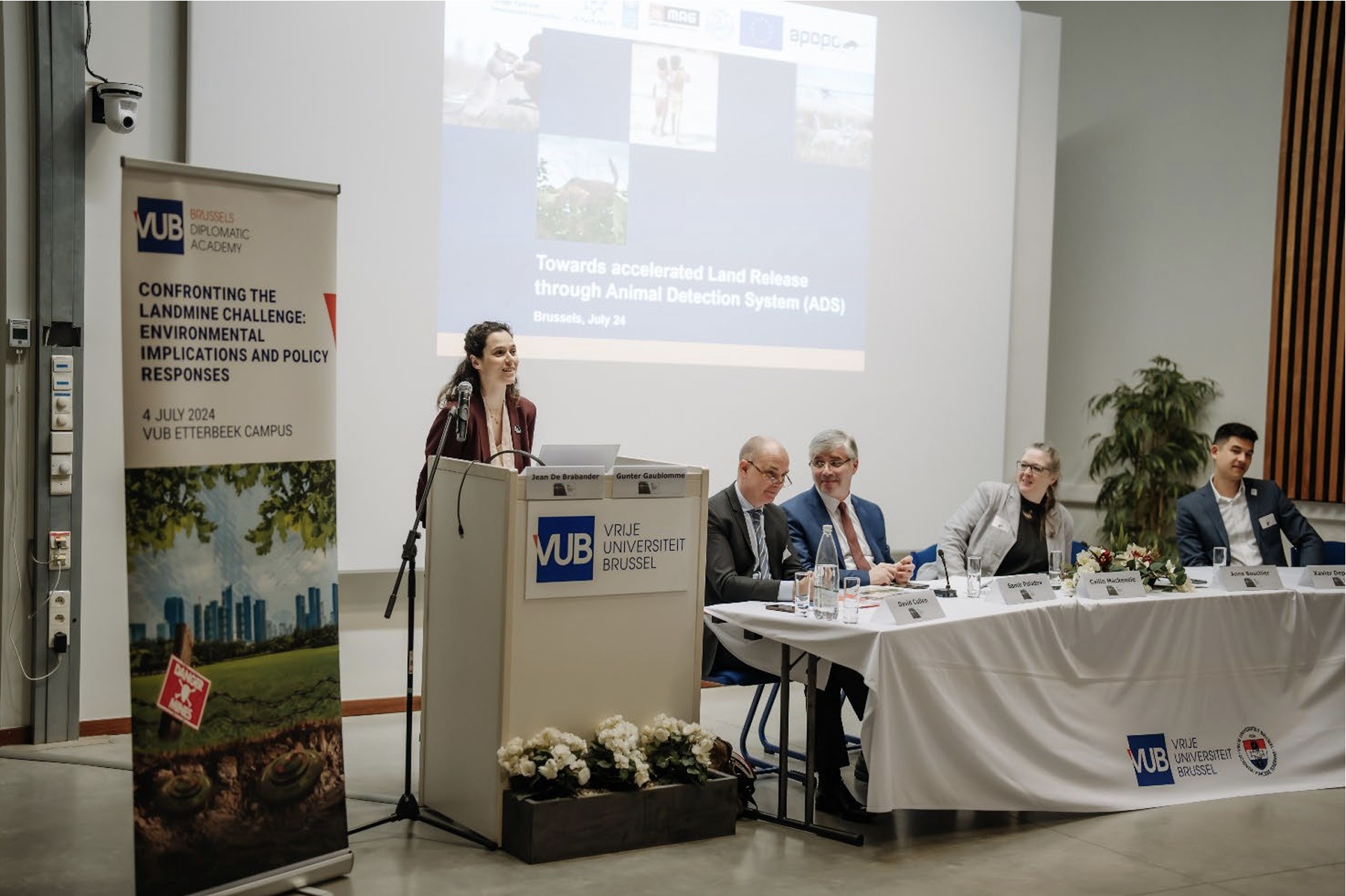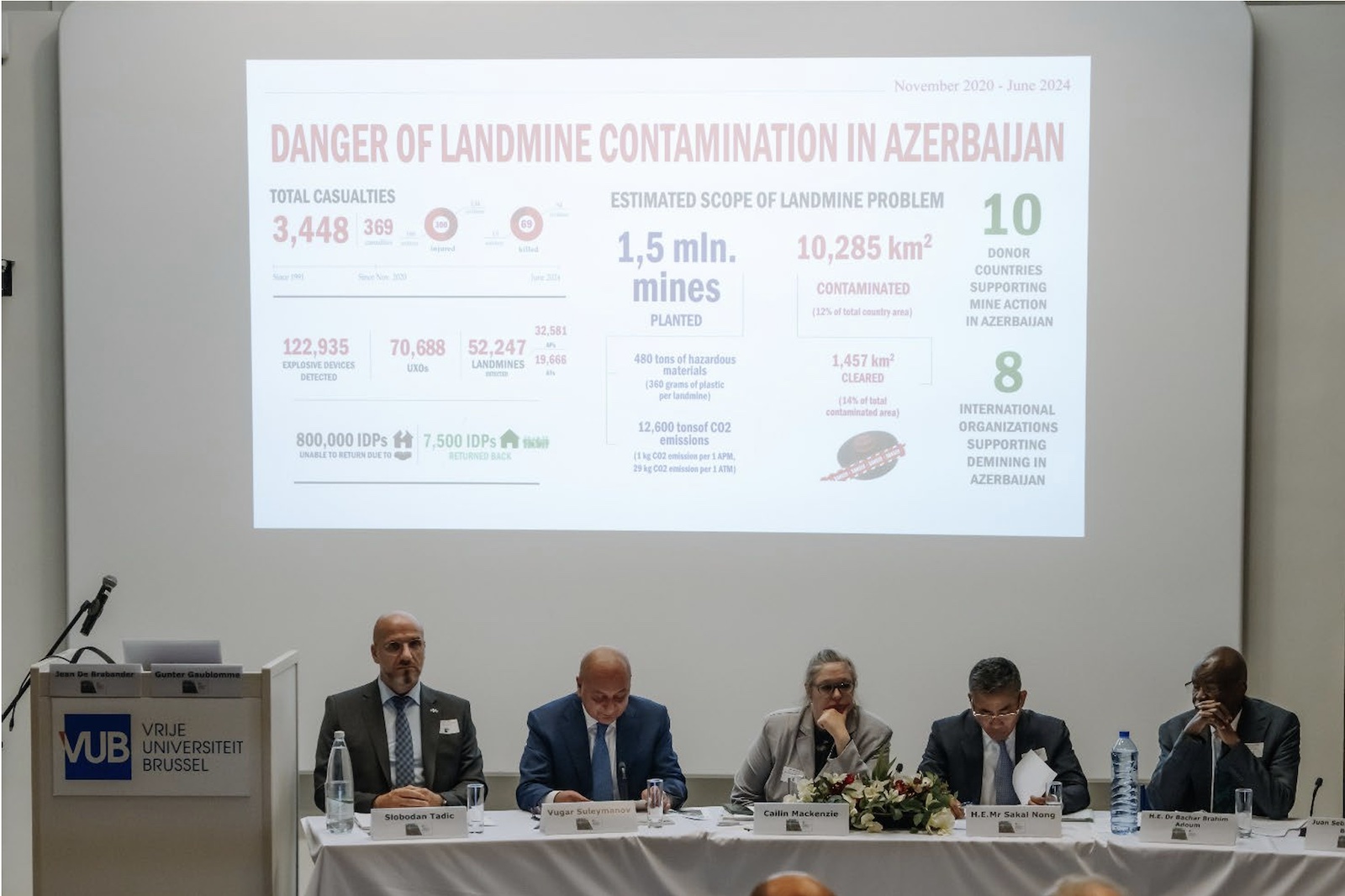On July 4, APOPO took part in the conference “Confronting the Landmine Challenge: Environmental Implications and Policy Responses,” organized by the Brussels Diplomatic Academy (BDA). Anna Bouchier, APOPO’s Director of Partnerships for Europe, presented on the panel “Confronting the Landmine Challenge – Experiences from the Field and Best Practices.” She discussed APOPO’s unique use of trained rats (HeroRATs) and dogs (HeroDOGs) for landmine detection, a method that is both cost-effective and more environmentally friendly.
Anna’s presentation emphasized the importance of collaboration, highlighting APOPO’s innovative approach using a combination of mine detection rats (MDR), technical survey dogs (TSDs) and manual demining, “Our HeroRATs have proven to be a game-changer in landmine detection, combining efficiency with cost-effectiveness,” Bouchier explained.
The panel also included experts David Cullen from the European Commission and Samir Poladov of Azerbaijan’s mine action authority, ANAMA.
David Cullen, Head of Unit, EU Directorate-General for European Neighbourhood Policy and Enlargement Negotiations (DG-NEAR) discussed the EU’s support for demining efforts, emphasizing the need for continued funding and policy support. “Our commitment is to help affected countries not just with demining but also with rehabilitation and sustainable development,” Cullen said.
Celebrating Belgium’s Support for APOPO in Azerbaijan
A ceremony at the end of the conference celebrated the Belgian Ministry fo Foreign Affairs’ (BMFA) donation of €250,000 to APOPO, to boost demining operations in Azerbaijan. Anna Bouchier expressed gratitude, saying, “APOPO is deeply grateful for the generous support of the Belgian Ministry of Foreign Affairs, which enables the deployment of its technology further in Azerbaijan. We are proud to be contributing to the land release effort in Terter and Aghdam under the auspices of ANAMA and the Government of Azerbaijan.”
The project in Azerbaijan focuses on high-priority areas in the Terter and Aghdam regions, aiming to clear over 1.13 million square meters of mine-contaminated land. The funding facilitates the safe return of internally displaced persons (IDPs) and supports reconstruction and development initiatives under ANAMA.
The BMFA’s Wider Support of APOPO

Belgium’s support for APOPO began in Mozambique, where funding from the BMFA played a significant role in helping the country achieve mine-free status in 2015. The Belgian government provided substantial financial assistance that enabled APOPO to integrate its innovative Mine Detection Rats (MDRs) and enhance traditional demining methods. This collaboration was instrumental in clearing vast areas of land, allowing communities to safely return and utilize their land for productive purposes.
In Angola, the BMFA has been supporting APOPO since 2012, providing funds to bolster demining efforts and improve land release rates. Belgian funding has enabled the deployment of MDRs, significantly reducing the time and cost associated with landmine clearance. This support has been critical in making progress towards Angola’s goal of becoming mine-free by 2025. Additionally, the BMFA’s contributions have facilitated the development of local capacity through training programs and the introduction of innovative demining techniques.
The BMFA’s funding in Cambodia has similarly allowed APOPO to clear millions of square meters of land in critical areas, such as around the Preah Vihear Temple. This support has not only enhanced safety but also promoted economic development by making land available for agriculture and infrastructure projects. The use of MDRs and TSDs, funded by the Belgian government, has improved the efficiency and effectiveness of landmine detection and clearance operations in the country.
Speakers from various countries shared their experiences with landmines and unexploded ordnance (UXOs), emphasizing their significant environmental and humanitarian impacts. Innovations like women-only demining teams in Azerbaijan and advancements in drone technology for non-invasive mine detection were highlighted as crucial steps forward.
Collaborative Efforts for a Future Mine-Free World
The conference underscored the need for shared experiences and partnerships. Vuqar Suleymanov of ANAMA emphasized Azerbaijan’s commitment to addressing the environmental impacts of mines. The event concluded on a hopeful note, with participants recognizing the power of international cooperation in creating a safer, mine-free world.
APOPO remains dedicated to its mission, leveraging innovative techniques and international support to continue making strides in demining efforts globally.
APOPO is deeply grateful for the generous support from the Belgian Ministry of Foreign Affairs over the years.



